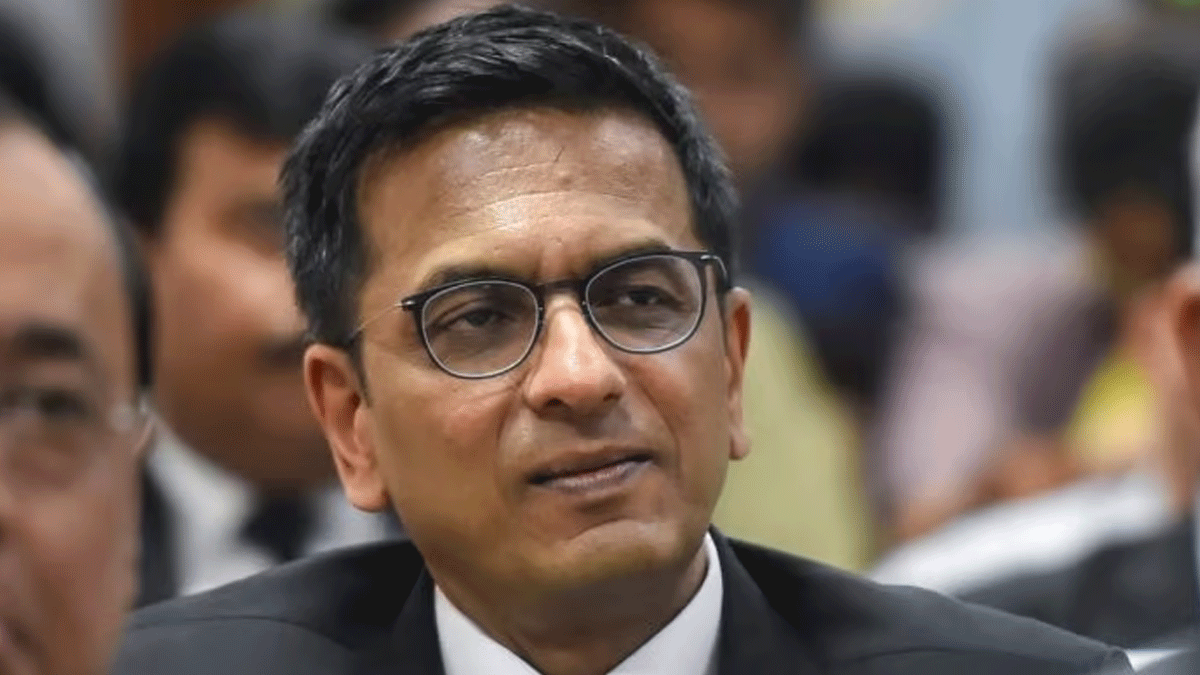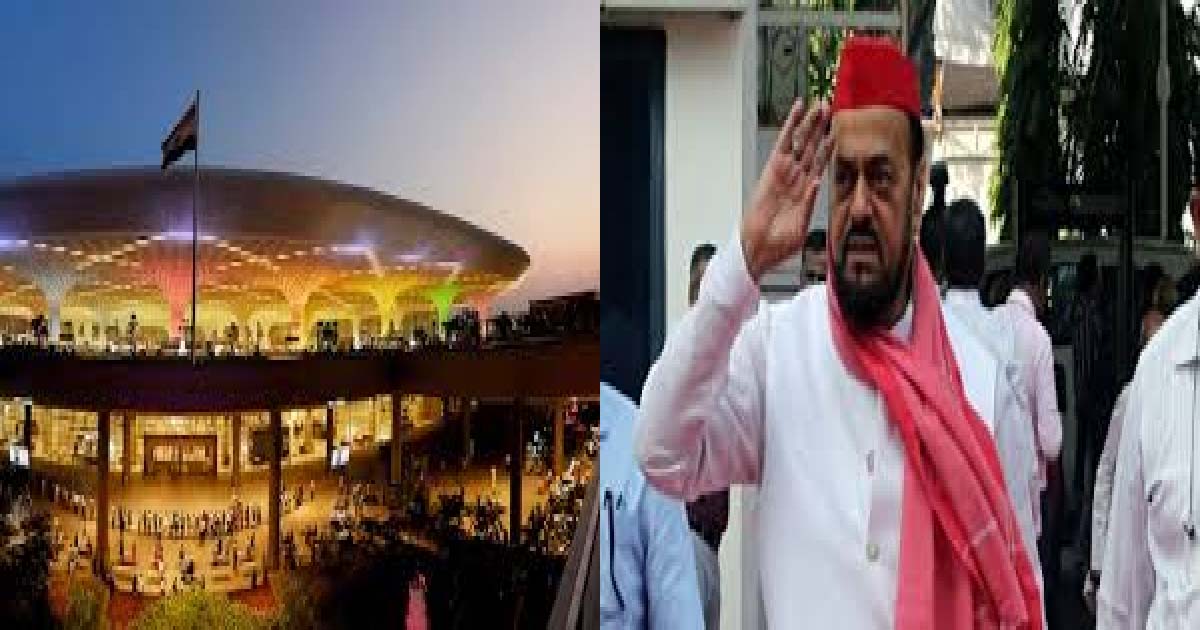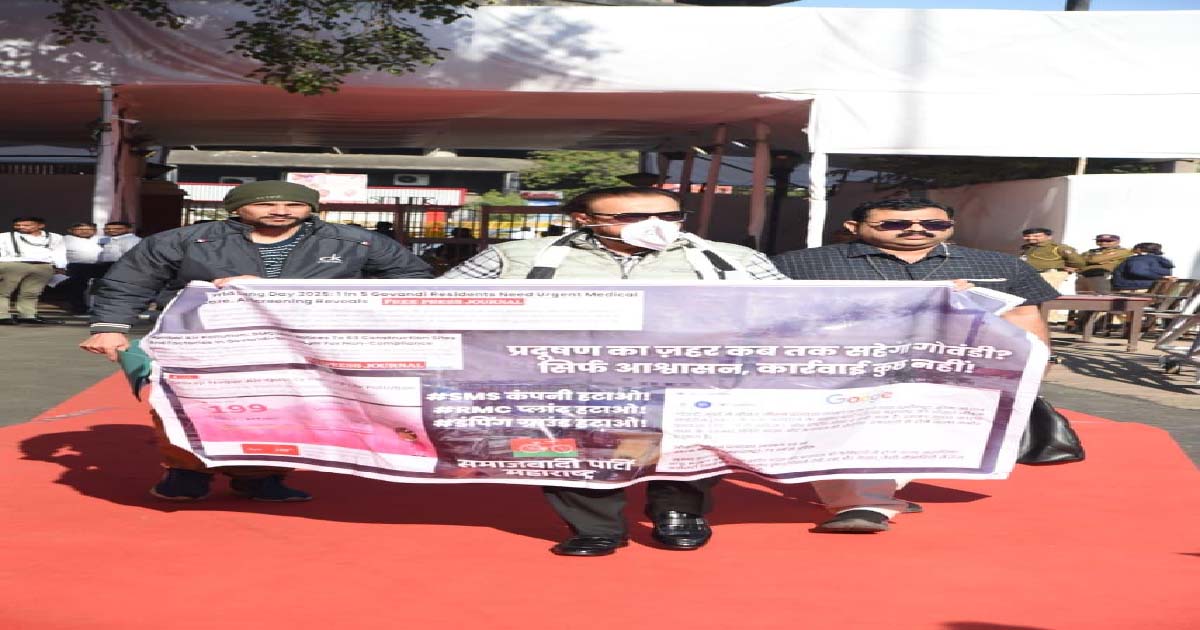Maharashtra
Mumbai: ‘There Is Constant Tussle About Controlling Appointment Of Judges,’ CJI Chandrachud

The tussle between the judiciary and the government over the appointment of judges was once again apparent on Friday when Chief Justice of India (CJI) DY Chandrachud breached the topic during the inauguration of the new premises of the Central Administrative Tribunal (CAT) bench in Mumbai.
CJI said that there is a constant tussle about who will control the appointment of judges even as the vacancies arise, and the recommendations are kept pending for a long period of time.
Importance of tribunals
Emphasizing the importance of tribunals in the country, CJI said one of its objectives is to battle the delays and help unclog the courts and aid overall in the dispensation of justice.
The tribunals, however, are plagued with problems, and we ask ourselves whether it is really necessary to constitute so many tribunals, the CJI said. “Because you do not get judges, when you get judges, vacancies arise which are kept pending for a long period of time…and then there is this constant tussle about who will get ultimate control over the appointment of judges,” CJI added.
Appreciating the work culture in Maharashtra, CJI said: “There is a culture of governance where the government successfully has left the judiciary alone. They do not tinker with the work the judges do. They accept outcomes that are favorable…they accept outcomes that are unfavorable because that is the culture of Maharashtra.”
The struggle to acquire space in the city
Highlighting the struggle to acquire space in the city, CJI said that every Mumbaikar would testify to the troubles of securing a space. “Very often we forget the importance of the work that the government does in aiding and supporting the judicial infrastructure,” he said, adding that the government played a proactive role in allotting a place for a new high court complex.
The CJI, who has been vocal for inclusivity, said that to make justice accessible to all, it is necessary to make courtrooms more accessible to differently-abled persons. He added that technology cannot become the sole medium to access justice, and physical access to courts can never be understated and hence must be constantly improved.
Stressing the importance of tribunals, CJI said that it has also helped litigants. “A rightful but weary pensioner or a wrongly terminated single mother may not withstand a long and winded litigation as well as outlast her much more powerful opponent, usually the State, in a long-winded legal tussle,” the CJI said. The tribunals make this journey less onerous for the litigants in matters of public employment.
Infrastructural gaps in the judiciary
A report prepared by the Centre for Research and Planning highlights the infrastructural gaps in the judiciary. “The report found that for a sanctioned strength of 25,081 judges in the district judiciary, there is a shortage of 4051 courtrooms. Notably, 42.9 percent of the total courtrooms have been under construction in the last three years,” CJI said.
He said that there are many barriers that stand in the way of access to justice for many, and the inability to get a timely outcome may impact each person differently. At a certain level, we feel that delay impacts everybody equally, but that is not so, the CJI said, adding it has a disparate impact on everyone.
Giving examples of lactating mothers and a person in a wheelchair, CJI said: “It is no answer to a wheel-chair bound person, a senior citizen, or a lactating mother for our courts to tell them that our courts are better experienced online. The litigant alone must have the choice of how they want to access the courts.”
Democracy in India
While speaking at the Jamnalal Bajaj Awards, CJI said that India has been able to sustain democracy, unlike several other nations that acquired freedom around the same time as India did.
“75 years ago several nations across the world joined India in freeing from colonial rule but so many of these nations have fallen by the wayside. They attained independence but they were unable to attain true self-governance,” said CJI. India is unique because we have been able to sustain democracy. “What is it that sets us apart from several of those nations that attained freedom around the same time? Some say we have internalized democracy, constitutional values. Others will say the strength of our nation lies in its pluralistic culture, all-encompassing humanity,” CJI added.
He underscored that the power of violence, the power of guns has got better of the rule of law in other nations. However, India has survived because of our “ability to dialogue.”
Maharashtra
Preparations for Sunni Dawat-e-Islami’s three-day global Sunni gathering in full swing

Mumbai: Like every year, this year too, the 33rd annual gathering of the Sunni Dawat-e-Islami Movement is being held on Friday, Saturday and Sunday, December 12, 13 and 14 at Azad Maidan, Wadi Noor, opposite CST, Mumbai. Like last year, this year too, the gathering on the first day, Friday, will be for women only, while the remaining two days will be reserved for men. Insha Allah, many scholars, preachers and mashaikhs from the country and abroad will participate in this global gathering. The preparations for the gathering were started last Saturday in the evening after the weekly central gathering. Urdu Media In-charge Maulana Mazhar Hussain Alimi said that the leaders of the movement are making full efforts to make the three-day gathering a success. Efforts are being made to provide all possible facilities so that the audience and attendees do not face any kind of trouble. As per tradition, this year too, the three-day global gathering will be broadcast live on sdichannel, which will be directly accessible to those who wish to learn religious teachings from all over the world. The women’s gathering on the first day will feature speeches on important topics such as “Women’s Intellectual Taste”, “Women’s Real Ornament: High Character and Modesty”, and “Women’s Share in Inheritance”. In addition, the researcher of modern issues Hazrat Mufti Muhammad Nizamuddin (President Mufti of Jamia Ashrafia Mubarakpur) will answer questions asked by women about Islam. Ameer Sunni Dawat-e-Islami and the spiritual leader of this gathering, the great preacher Hazrat Maulana Muhammad Shakir Noori, has appealed to people to participate in the gathering as much as possible, understand the message of religion and act on it. Ameer Sunni Dawat-e-Islami has said that they should also come and bring their friends and thus become a means of transmitting religion. He has appealed to Muslims to send women from their homes to the gathering on the first day so that they can Attend the gathering to learn religious teachings, improve themselves and advise others. There will be important speeches by great scholars and preachers in the gathering on the second and third days. There will be detailed speeches on important topics such as “The Miracle of the Holy Quran”, “The Spiritual Life of the Holy Prophet (PBUH), “The Envoy of Peace (PBUH), “Searching for Humans in Humans”, “Ethics and Spiritual Training of Youth”, “Religious Information and Artificial Intelligence”, “Signs of the Pleasure and Displeasure of Allah Almighty”. Islamic thinker Allama Qamar-uz-Zaman Azmi (Secretary General World Islamic Mission London) will deliver a speech on the third day. Insha Allah, the commentator of the Quran, Khalifah Mufti Azam Hind, Hazrat Allama Zaheeruddin Khan Rizvi, will also deliver an insightful speech. In the gathering on the third day, there will be a gathering after Zuhr prayers, followed by a lecture on the latest issues of Bukhari Sharif, in which the last hadith of Bukhari Sharif will be delivered by Hazrat Allama Mufti Muhammad Nizamuddin Rizvi (Jami’ Ashrafia Mubarakpur). On this occasion, prayers are accepted in the presence of the Lord, so be sure to participate in this prayer as well.
In order to facilitate the participants of the gathering, a large number of ablution rooms and toilets are being built, and more than sixty cameras are being installed throughout the gathering as part of security arrangements. In addition, about two thousand women will volunteer for the women’s gathering, while more than one thousand male volunteers will serve in the gathering on the second and third days. The police have requested the participants of the gathering not to bring handy cameras, laptops, wires, batteries, matchboxes, lighters, nail cutters and other electronic equipment that runs on batteries. For security reasons, parking of motorcycles or any other vehicle around the Azad Maidan is not allowed.
Maharashtra
Azmi demands in Nagpur Assembly that Navi Mumbai Airport be named after Chhatrapati Shahu Maharaj

Mumbai: In the Mumbai Maharashtra Nagpur winter session, Member of Assembly Abu Asim Azmi has demanded that the Navi Mumbai Airport be named after Chhatrapati Shahu Maharaj. He said that he died in Mumbai on May 6, 1922, so the Navi Mumbai Airport should be named after Shahu Maharaj. He said that Shahu Maharaj has always served Dalits, backward classes, educational reservation and equality and it is to his credit that Dalits and backward classes are provided with reservation and other facilities. He said that the Navi Mumbai Airport should be named after a great leader. Since the airport is a transportation hub, naming the airport after Chhatrapati Shahu Maharaj is a tribute to him.
Maharashtra
Azmi’s unique protest… Wearing a mask, he reached Nagpur Assembly with a banner demanding effective action to end toxic air pollution in Mumbai, SMS company

Mumbai: Air pollution and toxic atmosphere are common in Mankhurd Shivaji Nagar. The people of Shivaji Nagar and Govindi are facing toxic fumes every day. Successive governments have neglected this area because it is a poor neighbourhood.
On the second day of the winter session of the Assembly today, the Samajwadi Party (SP) made a clear demand.
It has demanded the immediate closure of the SMS company, RMC plant, and dumping ground and made it clear to the government that it should stop playing with the lives of the common man.
The government should take effective steps to eliminate this toxic air pollution. Abu Asim Azmi said that due to the SMS company in Govandi, the average age of people has increased to 39 years and diseases are spreading due to burning waste and chemical materials in it, so it should be banned immediately. He further said that clean sanitation and other facilities should be available in Govandi and such a factory should be closed so that the people can live a healthy life. Abu Asim Azmi protested against the toxic air outside the Nagpur Assembly in a very unique way by holding a banner and wearing a mask.
-

 Crime3 years ago
Crime3 years agoClass 10 student jumps to death in Jaipur
-

 Maharashtra1 year ago
Maharashtra1 year agoMumbai Local Train Update: Central Railway’s New Timetable Comes Into Effect; Check Full List Of Revised Timings & Stations
-

 Maharashtra1 year ago
Maharashtra1 year agoMumbai To Go Toll-Free Tonight! Maharashtra Govt Announces Complete Toll Waiver For Light Motor Vehicles At All 5 Entry Points Of City
-

 Maharashtra1 year ago
Maharashtra1 year agoFalse photo of Imtiaz Jaleel’s rally, exposing the fooling conspiracy
-

 National News1 year ago
National News1 year agoMinistry of Railways rolls out Special Drive 4.0 with focus on digitisation, cleanliness, inclusiveness and grievance redressal
-

 Maharashtra1 year ago
Maharashtra1 year agoMaharashtra Elections 2024: Mumbai Metro & BEST Services Extended Till Midnight On Voting Day
-

 National News1 year ago
National News1 year agoJ&K: 4 Jawans Killed, 28 Injured After Bus Carrying BSF Personnel For Poll Duty Falls Into Gorge In Budgam; Terrifying Visuals Surface
-

 Crime1 year ago
Crime1 year agoBaba Siddique Murder: Mumbai Police Unable To Get Lawrence Bishnoi Custody Due To Home Ministry Order, Says Report












